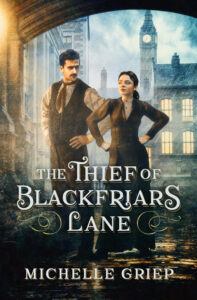By Michelle Griep, @MichelleGriep
In this day and age, I’m all about positivity and encouragement. Really. There’s enough negativity slapping you upside the head everywhere you turn. Am I right?

That being said, today we’re going to cover the “don’ts” because, like you, I’ve fallen prey to bad advice before—like that ugly white pair of polyester stirrup-pants still hanging in my closet. So, without further ado, here are the top 5 pieces of writing advice you can safely ignore.
1. Learn a new word every day.
Seriously? What the heck for? So that you can spew it out in your manuscript and look like a smarty pants? No. Immediately no. If, on the off-chance, you happen to pick up a new word that you’d like to take on a spin around the block, go for it, but don’t waste your time trying to memorize a word a day. Multi-syllable obscure words do not make you a better writer, just a pretentious one.
2. Write what you know.
Dude, if you wait to write a novel until you know everything about a particular subject or era, you’ll never start. Or if you only write about the things you know really well, like stamp collecting, you’ll get way too detailed and bore the reader. Do your research then write, whether you’re an expert or not.

3. Your career hinges on your debut novel.
Really? Says who? Sure, a fantastic debut novel can get you noticed and potentially nab you another contract like pronto, but even if your first book doesn’t rocket off the ol’ sales chart, that doesn’t mean you won’t ever sell another manuscript.
4. Write for the market.
If you don’t write for yourself, you’re going to get very frustrated. Write the book that you’re passionate about, whether or not that’s a current trend on bookshelves.
5. It’s the synopsis that will sell the story.
Thank the sweet heavens this one isn’t necessarily true because dang if I can’t write a synopsis to save my life. Yeah, you have to be able to jot down the major points of your story, but don’t stress over the p’s and q’s of your synopsis structure.
There. Feel better? And if you’d like to keep up on what’s trendy in really bad writing advice, check out The Worst Muse on Twitter.
There’s Often a Fine Line Between a Criminal and a Saint
Constable Jackson Forge intends to make the world safer, or at least the streets of Victorian London. But that’s Kit Turner’s domain, a swindler who runs a crew that acquires money the old-fashioned way—conning the rich to give to the poor. When a local cab driver goes missing, Jackson is tasked with finding the man, and the only way to do that is by enlisting Kit’s help. If Jackson doesn’t find the cabby, he’ll be fired. If Kit doesn’t help Jackson, he’ll arrest her for thievery. Yet neither of them realize those are the least of their problems.

Michelle Griep’s been writing since she first discovered blank wall space and Crayolas. She is the author of historical romances: The Captured Bride, The Innkeeper’s Daughter, 12 Days at Bleakly Manor, The Captive Heart, Brentwood’s Ward, and A Heart Deceived, but also leaped the historical fence into the realm of contemporary with the zany romantic mystery Out of the Frying Pan. If you’d like to keep up with her escapades, find her at www.michellegriep.com or stalk her on Facebook, Twitter, or Pinterest.
